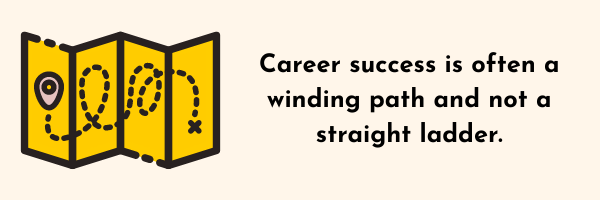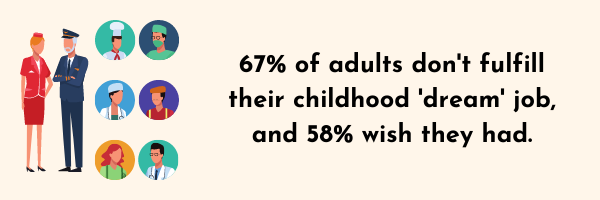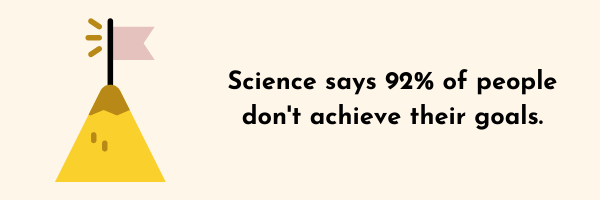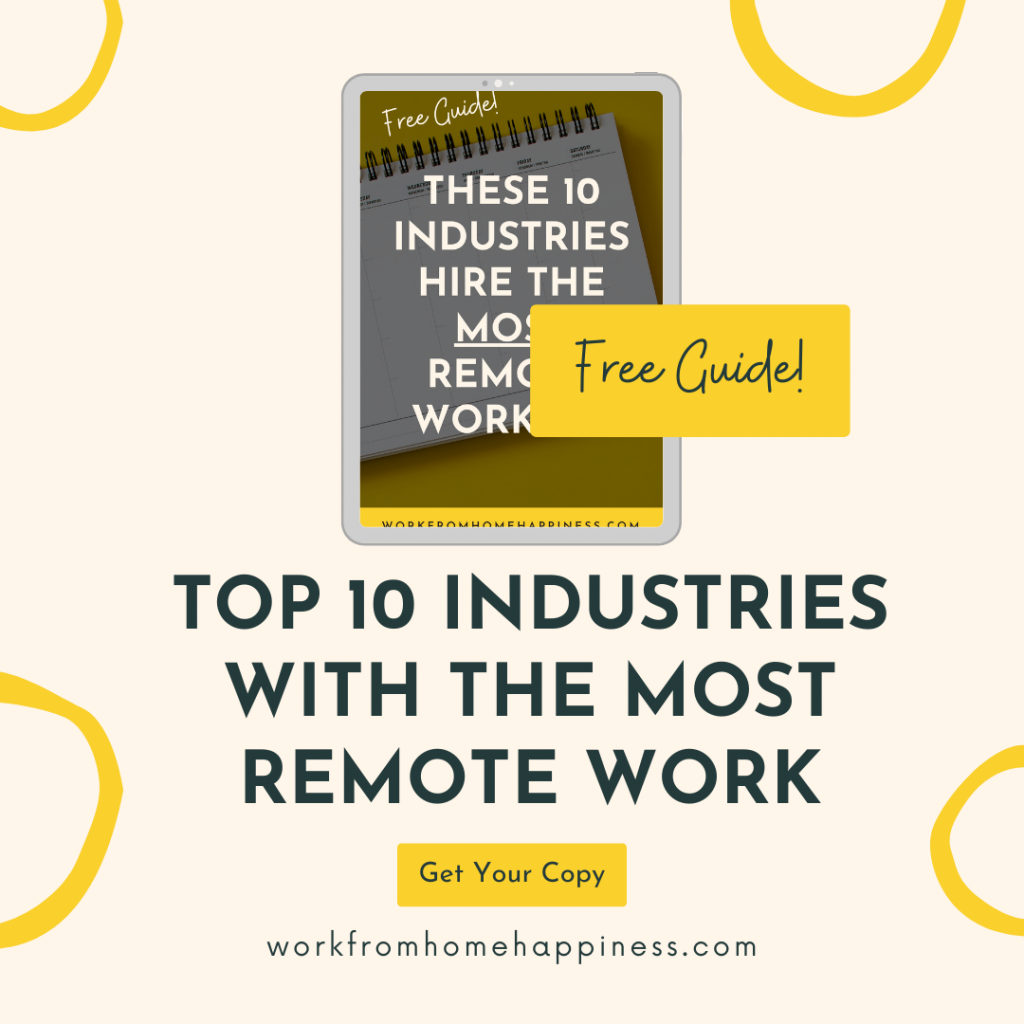TED Talks are packed with valuable information. I routinely watch and listen to them whenever I need inspiration or feel stuck. If you’re not familiar with TED Talks, they are expert led videos, called talks, that are short but impactful (clocking in at under 18 minutes).
As a nonprofit, TED is committed to spreading ideas to its global community. This powerful mission takes shape as TED Talks, conferences, TEDx, TED-Ed and more.
TED Talks for Careers
Over the years, TED Talks have inspired career changes in both myself and clients I coach. In fact, I recommend these motivational speeches regularly. They’re perfect when you need a fresh perspective, but they also teach you something new. And this is invaluable.
I’m a firm believer in lifelong learning. People with this type of growth mindset are more successful than the average person. This success comes in different forms like:
- Career growth
- Brain health
- Sense of connection
- Fulfillment
- Happiness (woohoo)
The best part? You don’t have to enroll in one bachelor’s degree program after another to embrace lifelong learning. Today, you can digest educational content quickly and easily online. From LinkedIn Learning to Coursera, you can learn a job-ready skill in a matter of months.
TED Talks too offer opportunities for bite-sized learning with informative videos that benefit your way of thinking about important topics. One of which is your career.
Here are 6 seriously impactful TED Talks that will change the way you think about work.
1. The Best Career Path Isn’t Always a Straight Line
From a young age, we’re told that career paths are linear. You go to school, pick a major, get a degree, and then get a job in your field. From there, you predictably climb the corporate ladder.
Unfortunately, actual career paths aren’t nearly as straight or supported as a ladder suggests.

In fact, a 2019 study found just 27% of graduates end up working in the field of their major. Plus, the average worker has a whopping 12 job changes in their lifetime. And these changes don’t follow a linear path. They often look more like a zig zag or roller coaster of ups and downs.
And that’s okay. It’s better than okay. It should be expected. And that’s why we need to teach students and job seekers that they are more than their past job titles or college degrees.
Most of us won’t climb the corporate ladder and even fewer will go on to retire with a gold watch in hand after 40 years of dedicated service to a single employer.
That’s why I love the TED Talk “The Best Career Path Isn’t Always a Straight Line.” In this 9-minute video, career development consultants Sarah Ellis and Helen Tupper introduce you to “squiggly” careers.
This is a must-watch for anyone who feels restricted professionally or defined by their roles.
Keep Learning
Ready for a deep dive into unexpected turns in your career? Grab a copy of The Squiggly Career book on Amazon.
It’s available through Kindle Reader, Audible, and paperback.
2. How To Know if It’s Time to Change Careers
In my mid 20s, I found myself unhappy at work. I went to school, graduated, and even landed a job in my field. So, why wasn’t I happy?
As it turns out, an interest in an industry does not equal long-term career satisfaction. That’s because we constantly change and evolve in what matters to us in work. Unfortunately, we don’t always make proactive career choices. The result? We stay ‘stuck’ in a career rut even though we know it’s probably time to move on.
Sure, quitting your job is scary. But, staying put in a job you dislike isn’t great either. Studies show that job unhappiness affects your mental health and leads to:
- Sleep problems
- Anxiety
- Depression
So, if you’re feeling ‘off’ at work, a career change may very well be exactly what you need. But how do you know if it’s really time?
Entrepreneur Chieh Huang delivers an enlightening TED Talk about career moves and how to prepare for them.
It’s never easy to walk away from employment. But sometimes it’s necessary for job satisfaction.
3. How To Find Work You Love
From an early age, we are told we can be anything we want. Teachers and parents frequently ask us what we want to be when we grow up. Do you remember what you said? If you’re like the majority of kids, you probably answered:
- Doctor
- Teacher
- Lawyer
- Astronaut
- Veterinarian
- Movie Star
A 2019 survey found 67% of adults did not go on to fulfill their childhood dream job. Of those surveyed, 58% wish they had.

Of course, there are millions of job titles available to us but we don’t often consider them. And that is unfortunate because you end up missing out on potential career paths you could love without even knowing it.
Curious if there’s a career out there you never considered? Be sure to check out How to Find Work You Love.
You might be surprised to learn that career happiness is found in unexpected ways.
4. What Makes Us Feel Good About Our Work?
Everyone is motivated by different things. As a career coach, I work with clients who find their primary motivations include:
- Money
- Prestige
- Influence
- Job title
There is no right or wrong motivation for what matters to us at work. But it is important that you understand what your unique motivators are.
Behavioral Economist, Dan Ariely, shares two experiments to help you figure them out:
You can also grab a copy of Ariely’s book, Payoff, to discover “the hidden logic that shapes our motivations.”
Knowing what matters to you at work is easy to figure out, but most professionals have no clue what their values are. Take the time to reflect on your own motivators so you can find work that makes you feel good.
5. Why Some Of Us Don’t Have One True Calling
Some people go through life and never actually figure out what they want to be. Sure, many of us think we have it figured out. But in reality, only a small percentage of us actually do.

And we have to learn that this is perfectly okay and even normal. Most people do not want to do just one thing their entire life. Heck, most of us simply can’t do one thing forever. Think of jobs that have been eliminated by tech or automation. But even when given a choice, job seekers prefer variety.
Emilie Wapnick calls these people “multipotentialites” and she shares insight into them in Why Some of Us Don’t Have One True Calling
Are you one of them? Chances are you’ve got a variety of interests and potential career paths that suit those interests.
Take a deeper dive by reading Emilie’s book, How to Be Everything: A Guide for Those Who (Still) Don’t Know What They Want to Be When They Grow Up.
6. The Way We Think About Work is Broken
My career coaching clients often think of work as a means to an end. That is, they have to make money so they pick a job based on pay.
Of course, sometimes life circumstances make it impossible to be picky about jobs. After a layoff or birth of children, for example, getting to work matters more than what you’re actually doing for work.
But there are other times when we can afford to be selective about jobs. Even still, most job seekers don’t think about anything other than a paycheck. It’s time to change that.
Barry Schwartz helps you think different about work and shares intangible values in The Way We Think About Work is Broken
If you can’t answer the simple question, “Why do we work,” then this TED Talk is a must-see.
I also highly recommend Schwartz’s book, Why We Work, to understand the purpose of work in your life. In the end, discover your own path to work happiness that isn’t necessarily tied to a paycheck.
Ted Talks to Challenge the Way You Think About Work
There are a lot of reasons we work. And not everyone knows what they want to do with their life. Many still won’t find satisfaction in just one role their entire lives.
This is okay. It’s time we change the way we talk about work. You don’t have to follow your passion, climb the corporate ladder, or chase a paycheck. Instead, focus on your individual values and interests.
Learn to identify when it’s time to make a change and don’t be afraid to take the squiggly path to career success.
If there’s one thing I’ve learned as a career coach for the last decade is work happiness comes in many (surprising) forms. The best way to find yours is to challenge your assumptions and get to know yourself better. I bet you’ll be surprised at what you uncover.
Happily,
Ashlee
In-Demand Remote Industries
Does your path to career happiness include remote work? Explore remote-friendly industries and in-demand job titles in my free guide The Top 10 Industries Hiring the Most Remote Workers. It even includes valuable resources for remote job seekers plus a free resume review by a real life expert.
P.S. This post contains affiliate links. Read my disclosure statement to learn more.



Leave a Reply